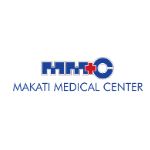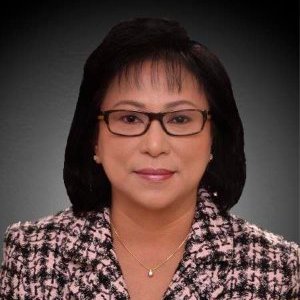Christine A. Donnelly, vice president for nursing and patient care services division of the Makati Medical Center on big data
 Social Media Portal (SMP): What is your name and what do you do for Makati Medical Center, Philippines?
Social Media Portal (SMP): What is your name and what do you do for Makati Medical Center, Philippines?
Christine A. Donnelly (CAD): I?m Christine A. Donnelly, vice president for nursing and patient care services division of the Makati Medical Center. I?m responsible for total management of patient care services, which ensures quality care through the provision of sufficient and competent personnel. I direct the training of nurses and other health professionals through a well defined, safe and quality educational curriculum.
 SMP: Briefly, tell us about Makati Medical Centre, PhilippinesCAD:
SMP: Briefly, tell us about Makati Medical Centre, PhilippinesCAD: Makati Medical Center or MakatiMed began in the early 1960s when Dr. Manahan, together with Dr. Jose Y. Fores, a distinguished surgeon, and Dr. Mariano M. Alimurung, a famous cardiologist, decided to set up a world-class medical facility in Makati City. On May 31, 1969, the Makati Medical Center formally opened its doors to the public.
Makati Medical Center is a 600-bed tertiary hospital that provides sophisticated medical and surgical facilities. Committed to delivering total quality healthcare services that exceed expectations.
Makati Medical Center is one of the top medical research and training facilities in Asia, and the Philippines' premier hospital. Decades of innovation and service to patients, their families, and community shows deep commitment to providing outstanding patient care, pioneering significant research initiatives, and training new generations of healthcare providers who can proudly continue the tradition of excellent health service with a heart.
SMP: Who are your target audience and why?CAD: Our audince includes
|
Audience
|
Their role
|
|
1. Clinical
Health care providers
|
Doctors, nurses and other
allied health care professional responsible for clinical services
|
|
2. Health
care practitioner informatics
|
Doctors, nurses and other
allied health care professional assigned in integrating innovation for
process and work simplification using
technology
|
|
3. IT practitioners
|
IT personnel and managers
practicing in a health care industry
|
|
4. Others
|
Those delegates interested
in the topic of the panel session
|
SMP: Why are you attending BIGIT Technology Singapore 2016? CAD: I am attending BIGIT Technology as a guest speaker who will provide a comprehensive learning experience regarding the latest technological innovations in the health care industry. I?m also attending as a delegate to expand awareness to continue to improve creating innovative strategies and resolution to improve the health care industry. In addition, attending the conference can give chance for partnership and networking to share best practices and support each other in continuing development.
My session is entitled ?Healthcare?s Future as a focused industry: The global Disease Research Prevention.? My session gathers health care professionals in identifying influential factors towards the aggressive growth of patient data. There is an absolute need to discover regulatory and industry changes to improve the quality and efficiency of data through health care service personalization alongside, valuating decision supports with big data analytics and IT to cultivate patient centricity.
SMP: What do you expect attendees/delegates will take away from your session?CAD: At the end of the session, participants will be able to
- Determine the relationship between health care and information technology.
- Identify key benefits of big data to health care.
- Learn challenges in technological advancement, in particular the emerging big data in the health care industry
- Recognise the big data in health care industry
- Identify influential factors towards the aggressive growth of patient data.
- Discover shared institutional regulatory and industry changes to improve the quality and efficiency of data through health care service personalisation
- Value the importance of improving healthcare industry through information technology.
- Apply learned strategies to own health care industry.
SMP: Why is big data such an important issue at Makati Medical Centre, Philippines and for this your medical and market/region?CAD replies with: The benefits are patients come and go, everyone needs health care in all as aspects such as promotion of health, prevention of disease, curative and treatment, rehabilitative, maintaining health until palliative and end-of-life. The need of digitalising can include benefits such as:
- Improving the quality and efficiency of health care delivery: cost effectively and access to care
- Detecting disease at early stages: at the laboratory and other centres with electronic centres
- Fraud detection, for identification and document submissions
- Makati Medical centres is gearing towards paperless system
The big data in the health care industry poses a challenge across:
(1) Storage capacities
(2) Processing power and
(3) Availability of data
Among the type of data generated and stored in different industry (i.e. video, image, audio, text/ numbers), the health care industry (MMC) has high data volume in terms of image and text/ numbers (source: McKinsey Global Institute analysis).
Big data has been an issue for the medical sector for quite a while with large providers like Google pulling out ? how are you addressing developments at the Makati Medical Centre, Philippines?CAD: In general, Makati Medical Center has the following in place - Information and Technology (IT) Department implementing support and data governance framework
- Engaging providers and end-users
- Foster competition and transparency
- Strengthen trainings and communication
- Provide flexibility in information transference
- Personalisation on hospital infrastructure and culture
- Create simple, understandable tools such as dashboards for clinicians on the front lines to visualise incoming data
- Close the quality loop
When possible, we choose in-house solution over vendor-generated solutions
SMP: What are the challenges that you?ve encountered regarding big data at Makati Medical Centre, Philippines and how are you overcoming them?CAD: At Makati Medical Center, challenge in handling Big Data issue includes the following:
|
Big data challenges
|
Strategies to address it
|
|
a.
Industry
Readiness ? financial and support
|
The hospital is supported
by the board of trustees and the whole company alliance (metro pacific
investment corporation).
|
|
b.
Data
usability/ Trustworthiness
|
Big data is invested to units with large populations
|
|
c.
Data
Fragmentation
|
The data was structurally
designed
|
|
d.
Architectural
and Infrastructure
|
With external company support , the Philippines biggest
telephone and communication provider
Installed super computers and servers
|
|
e.
Health
information Ownership, Use and Security
|
We have our own security
protection who also handled the PLDT group
|
SMP: What are the high moments of what you have been doing so far at Makati Medical Centre, Philippines?CAD: It?s allowed us to implement the following:
- Patient dashboard (nutrition and dietetics, nurses, admitting department, engineering, housekeeping)
- Electronic MAR
- Integrated Hospital Information System (iHIMS)
- RIS PACS- imaging studies viewer
- Online Lab results (web page and LAN [local area network])
- Information texting
- Institutional SharePoint (WHAM)
- Automated complaint tracking system
- Data sharing through Outlook and emails.
SMP: What impact is big data having upon Makati Medical Centre, Philippines and how the organisation works?CAD: It?s enabled the following:
- End-user preparedness challenges and updates in technology
- Cost and investments
- Integration in proven practices specially in clinical and processes
- Down time and back up
- Patient preparedness ? technological readiness
Overall it is for the patient easy access and comfort.
SMP What do you think is going to be the most interesting aspect regarding big data for the next 12 to 18-months and why?CAD: In relation to the Makati Medical Centre Overall big data will reduce waste and insufficiency allowing:
- Enhance clinical operations
- Improvement in public health
- Research and developments (evidenced-based practices in nursing and medicine)
- Genetics and laboratory
- Processes such as:
- Pre-adjudication fraud analysis
- Device/remote monitoring
- Patient profile analysis
SMP: What are your top overall big data and business intelligence tips and why?CAD: In relation to the Makati Medical Centre it is:
? Infrastructure readiness
? Management support and collaborative team efforts
? Efficiency and cost savings
? Process review, improvement , trainings and end-users
? Managing patient expectations
SMP: Best way to contact you and Makati Medical Centre, Philippines?CAD replies with: Christine A. Donnelly, RN, MSN, MA
Address: #2 Amorsolo St., Legaspi Village, Makati City, Philippines
Phone: +1551-200-3775 (US)/+639985390016 or +639151137920
Email:
cdonnelly1997@gmail.com or
Christine.Donnelly@makatimed.net.ph Makati Medical Center
Address: No. 2 Amorsolo Street, Legaspi Village, Makati City, Philippines 1229
Phone: (632) 8888 999
Email:
mmc@makatimed.net.ph
BIGIT Technology Singapore 2016 is to be held from 22-23 March 2016 at the Marriot Singapore Tang Plaza, Singapore.